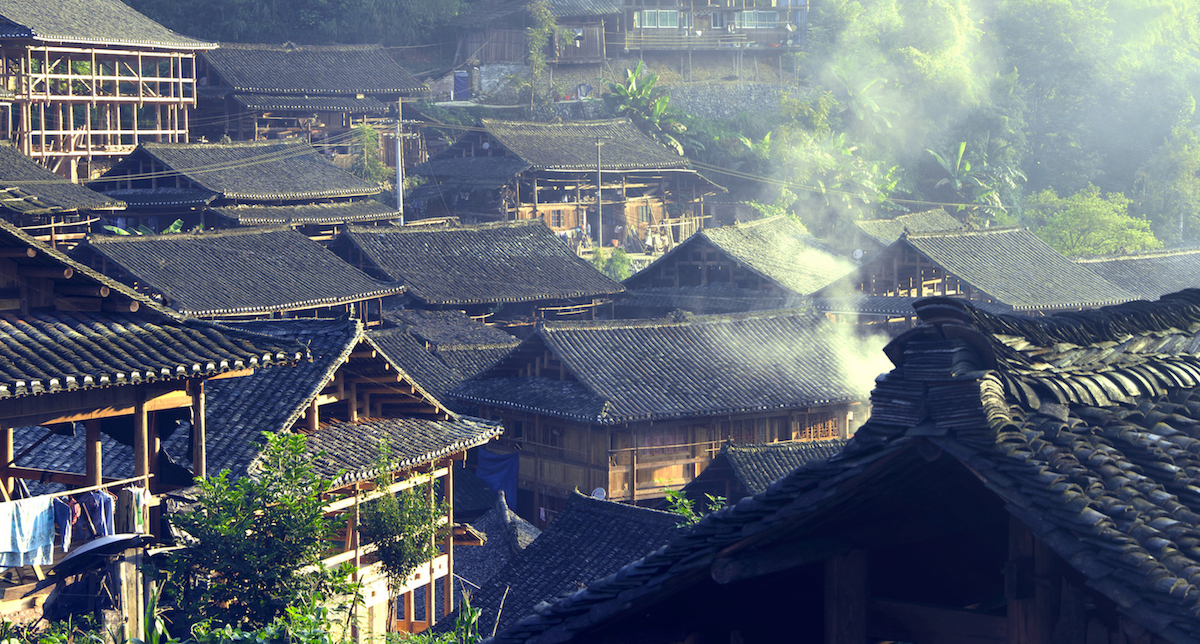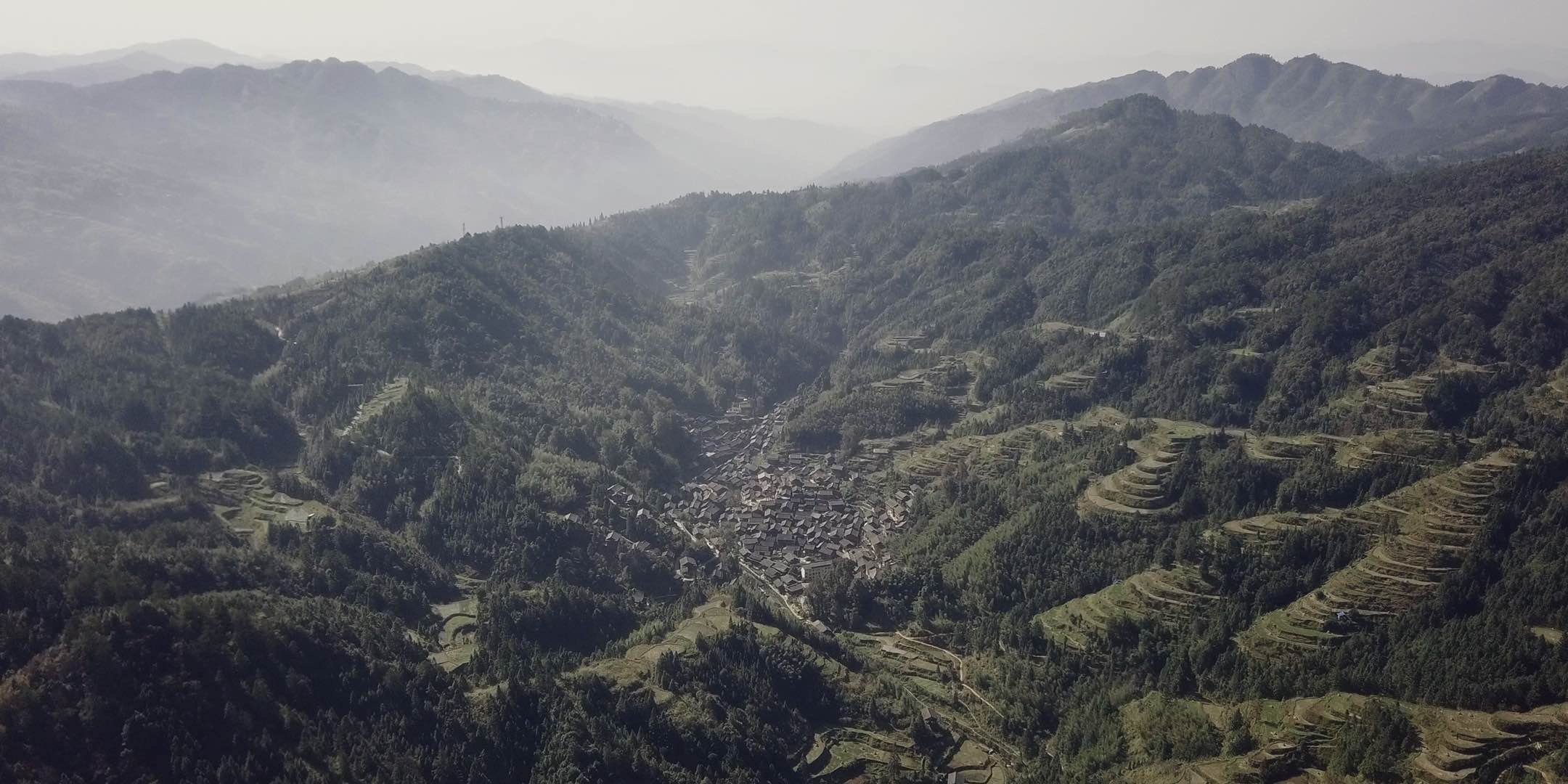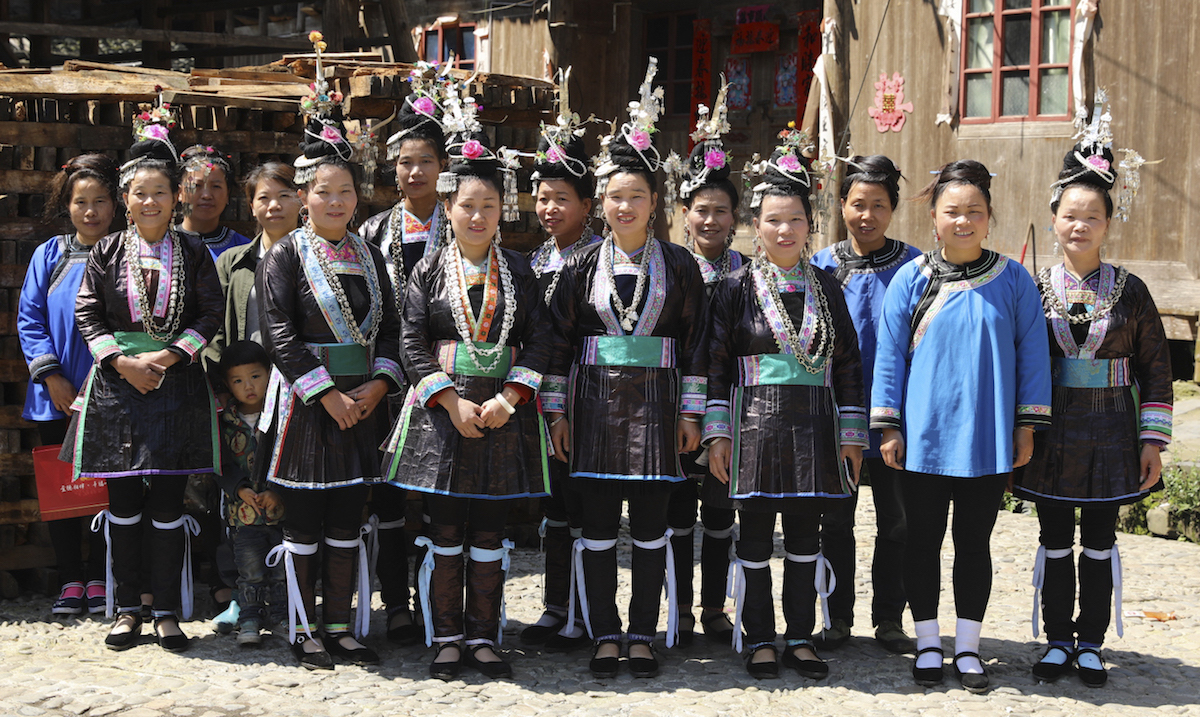
Dr Kuanghan Li, Director of the China Heritage Program
at Global Heritage Fund
In today’s globalized world, protecting rural values and community traditions is vital for understanding our world and bridging cultural diversity. Although many of us live in cities, our roots and community traditions connect us with past generations which were far more remote.
This is especially true in China, where populations range from vast megalopolises to tiny country hamlets. During the mid 20th century, China underwent extensive modernization as standardizing forces swept through the country. Many cultural expressions and traditional communities were irrevocably changed due to national policies, and much of the country’s population moved to urban centers. As a result, modern urban populations swelled while rural villages were left to fall into disrepair.

Rural homes in Guizhou Province, China.
Photo: Zhang Li / Global Heritage Fund
Recent changes have refocused attention on these rural villages, which have now gained official recognition and become popular areas of research. With renewed interest in rural populations, elitist heritage values have given way to appreciation of “ordinary” and “mundane” rural heritage.
Dr. Kuanghan Li, director of the China Heritage Program at Global Heritage Fund, explores these themes through the case study of Dali Village in Guizhou Province. Due to Guizhou’s difficult mountainous terrains and cultural diversity, a large amount of traditional ethnic villages still stand in the region. Many rural settlement traits and cultural phenomenon that have vanished in the more developed regions are still preserved here. Yet at the same time, these ethnic villages also face many common problems that plague contemporary Chinese villages.

Dali Village in Guizhou Province is surrounded by rugged landscape:
river valleys, mountainsides, and terraces. Photo: ATLAS Studio
Dr. Li recently completed her PhD in cultural heritage conservation from Peking University. Her thesis, Ethnographic Approach Towards Understanding Rural Heritage Values: The Example of Dali Dong Village in Guizhou Province, explores heritage values from a unique position between the external and internal value perspectives of Dali Village. Her “translation” of the two systems helps synchronize and integrate conservation forces from both official and unofficial sources, showing that rural heritage is a dynamic organic system that contains values closely associated with the community’s “acts of remembrance.”

The Dong women of Dali Village, Guizhou, in
traditional clothing. Photo: ATLAS Studio.
Like other ethnic villages, the characteristics of Dali are defined by the meaning, values, and emotions embodied in the tangible and intangible elements of the village. Interest in this type of “ordinary” heritage is on the rise around the globe. In our increasingly diverse world, we can all appreciate the importance of protecting community traditions and values as opportunities to bridge cultural diversity and foster intercultural understanding. Ms. Li’s research is another step in the path towards increased heritage protection in China, and eventually throughout the world.
Global Heritage Fund (GHF) is a non-profit organization empowering communities through historic conservation and heritage-driven local development.
Since 2002, GHF has helped local communities to save 28 sites in 19 countries with over 100 partner organizations. Using their Preservation by Design® methodology of community-based planning, conservation science, and strategic partnerships, GHF has invested over $30 million and secured $25 million in co-funding to ensure sustainable preservation and responsible development.

